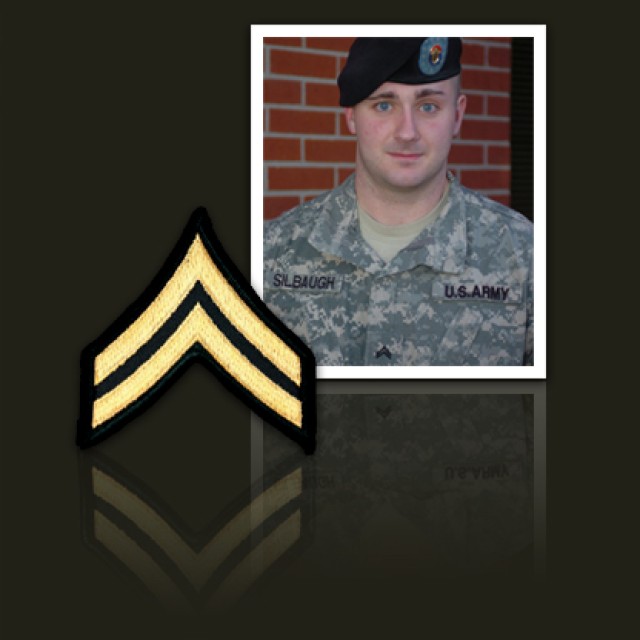The noncommissioned officers' corps is known as the "backbone of the Army."
To be an NCO is a time-honored position that indicates that a Soldier is ready to take on the responsibility of training and caring for Soldiers.
This leadership role can begin with the rank of corporal.
"Leadership has shown so much trust in your abilities to lead that they have recognized you with this rank, said Sgt. Tim Chatlos, broadcast NCO, 20th Public Affairs Detachment. "They have moved you into the NCO Corps before you are eligible for the rank of sergeant."
Chatlos was promoted to corporal when his unit needed an NCO to lead the other Soldiers.
"The unit needed someone to stand up and be a leader and I was able to fill that role," said Chatlos, a native of Orlando, Fla.
The rank of corporal was established in 1775 with the birth of the U.S. Army and is the one of two ranks which has never disappeared from the NCO corps.
During the American Revolution, sergeants and corporals were expected to instruct the troops everything from maintaining good order and discipline to cleanliness and personal hygiene. They maintained lists of accountability and briefed the first sergeant on the daily reports. They were also expected to fill in the gaps created by casualties on the battlefield and encourage their men to continue to fire straight and true.
Today, a corporal shares the same pay grade as a specialist, but is a junior NCO and takes on the responsibilities of a leadership position.
A corporal's roles and responsibilities include the completion of missions and the care of Soldiers.
"Every great NCO should want to lead Soldiers," Cpl. Zack R. Gribben, training and administrative NCO, 581st Signal Company. "Leading Soldiers is one of the hardest responsibilities an NCO can have."
A corporal in the U.S. Army is above specialist and below and is most commonly found in combat arms units and often leads a fire team.
"As a Corporal, you get all the responsibility and accountability of a sergeant, but you really aren't taken too seriously," said Chatlos. "This is something I take into account whenever dealing with a corporal now. I recognize that they were singled out by their command to enter the NCO Corps early."
"As a Corporal you are an [NCO], in my unit you are held to that standard," said Gribben, a resident of El Cajon, Calif. "You are given all responsibilities that come with the rank; NCO duty positions, additional duties, Soldiers, and missions that need to be conducted in a timely and professional manner."
Over the centuries, the job description of the corporal has changed, but the leadership exhibited by the junior NCO remains.
"You want to guide and mold [Soldiers] into great leaders," said Gribben. "Leading Soldiers is a privilege, not a must have."
"There is a reason why you don't see a lot of corporals," said Chatlos. "It feels good to be recognized like that."


Social Sharing